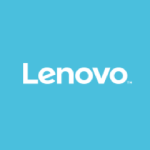What is our primary use case?
We're using it to host development workloads and it's performing as expected.
How has it helped my organization?
Dell EMC Unity XT is cheap and deep storage. It fits the business need that we had. I'm sure there are a number of other products out on the market that compete just as well.
What is most valuable?
One of the most valuable features is its cost. It was inexpensive compared to other arrays that we were looking at.
It's also easy to manage. I have 20 years of managing EMC storage and it has been the same from day one, pretty much.
We have also integrated it with vSphere and SQL. There were no costs involved outside of our normal workload licensing, no costs that were specific to the Unity platform.
What needs improvement?
It does what we bought it for. I don't know that there's anything else that it needs to do that we're not leveraging from it already. From a product perspective, I don't see any room for improvement.
From a service perspective, they can do nothing but go uphill.
For how long have I used the solution?
What do I think about the stability of the solution?
It runs. It operates. Developers can do their development work. It's not screaming-fast, but it doesn't fall down when you bring up a workload. So it's performing as expected.
We did encounter a firmware bug which actually caused loss of data. There was some heartburn around that. But in general, it has operated as expected, except for that bug. Fortunately, we found the bug in pre-production, so we didn't lose anything that we needed. However, had it been in production, we'd be having a very different conversation about Unity.
What do I think about the scalability of the solution?
I can't really comment on scalability. We bought the frame fully loaded. I don't know whether it scales or not. I suppose if I bought a unit that had half the capacity, it would scale to the max capacity. That wasn't my need.
How are customer service and technical support?
Technical support has gotten progressively worse. In the past 24 months, give or take, the amount of attention from Dell EMC support for flagship products, both the Unity platform - which replaced VNX - and their VMAX platform: Their support teams and R&D have gone down under the Dell regime.
Our customer service, our support, the engineers that we get on the phone, the hassles that we put up with at level-one and level-two, didn't exist three or four years ago with EMC. We paid a premium for EMC products and you got a premium service as part of that investment. We don't get that anymore.
How was the initial setup?
Set up went flawlessly.
Generally, with these types of products, there is not really much documentation from the build and configure perspective. There's a config sheet that you work on with your SE team. But it's not like going out and getting a packaged product from a Best Buy and implementing. There is an expectation from the config sheet for fiber connections, network connections, speeds and feeds, and the like. That is enterprise-class architecture. That's out-of-the-box.
What about the implementation team?
Dell EMC came in and did the implementation. They were knowledgeable.
What was our ROI?
I didn't put together an ROI for this product. We had a fixed budget that we wanted to invest in storage for development teams. This fit the bill.
What's my experience with pricing, setup cost, and licensing?
Pricing was competitive compared to other products on the market. Among the ones we considered, Unity came in with the best price.
Compared to other EMC platforms, Unity is nice because it is all-inclusive, in terms of the licensing model. That's unique for them, compared to other manufacturers. It is beneficial. We could use replication, native, right out-of-the-box.
Which other solutions did I evaluate?
We looked at NetApp, Infinidat, Pure.
What other advice do I have?
My advice is: Stay up to date on code.
Regarding the purchasing process, we went through a VAR and it was easy. Once pricing was established, the bill of materials was defined, we paid for the product, and it showed up.
In terms of important criteria when selecting a vendor, from an executive perspective, it's partnership. From my team's perspective, it's probably
- usability
- performance
- stability.
I want it up, I want it to stay up, and I don't want to have to manage it.
I would rate the solution at eight out of 10. It's not an all-flash array so it's not the fastest thing on the market. But the stability has been good, minus the initial bug. It does what we ask of it.
Disclosure: I am a real user, and this review is based on my own experience and opinions.











